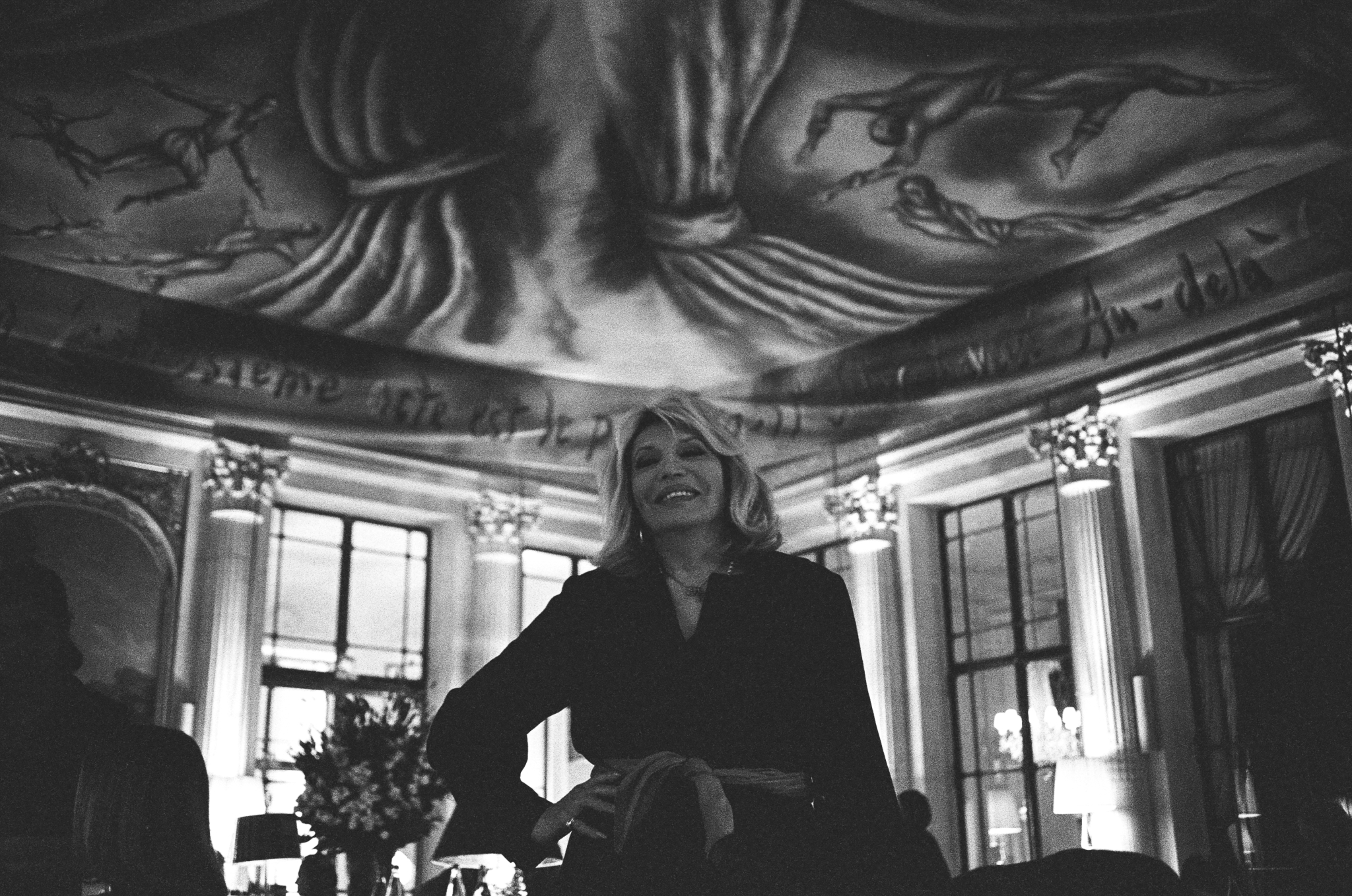

A legendary muse, artist, and musician who grew up, and remained connected to, the south of France, Amanda Lear speaks to music journalist Pierre Siankowski on her dazzling life—from Dalí’s mentorship to disco stardom, Bowie’s affection, and an enduring curiosity that keeps her forever ahead of the curve.
Amanda Lear was waiting for me at Le Meurice, the very hotel where she met and spent time with Salvador Dalí. The French singer-songwriter, artist, actress, and former model took off her sunglasses and sat me down diagonally across from her. Beautiful, funny, and cultured, Lear is a modern Casanova, in the scholarly and adventurous sense of the word. She explores, she crosses paths, she experiments, without ever questioning what’s next. Chanel recently repurposed her famous song Follow Me for its latest campaign. A trained painter, she is now exhibiting her work at Art Basel. Ask her what she wants to do in the near future, and you’ll realise that in a few years—whether in a studio, on a movie set, at a fashion show, or simply behind an easel—she’ll have achieved it.
Pierre Siankowski: Apparently, when Dalí first spoke to you, to ask what you did for a living, you replied, “We are colleagues.”
Amanda Lear: Yes, because I was at the École des Beaux-Arts, so in my mind I was a painter too. In fact, I was ashamed to admit I was a model, even though I was walking the runway for Paco Rabanne. I was really doing it to pay my rent. When I told him I was a painter, he said, “No, there are no women painters! What do you mean, women painters?” They didn’t exist for him. And Suzanne Valadon, Mary Cassatt, Frida Kahlo, Berthe Morisot—in his mind, women were in the kitchen, making omelettes. He said to me, “If you want us to remain friends, never show me your paintings.” It started well. So we became very good friends; I was fascinated by him. And then, I spent every summer after that at his place in Cadaqués, Spain.
PS: So he never saw any of your paintings?
AL: One day, in Cadaqués. It was summer, I was in his studio with him, watching him paint. I had a date with a guy, it was raining, and I couldn’t go out so I was very angry. I put the radio on, I was stamping my feet… He told me that I was annoying and that I was making too much noise. Since he knew that I was a painter, he challenged me. He gave me a small canvas and said, “These are my colours, my brushes, go ahead, paint!” After about half an hour he came to see me and said, “Is it finished?” I told him no and then he looked at me very seriously and said, “Then don’t go any further. Never finish a painting! That way people think that you haven’t finished and that it can still become a masterpiece.” I wasn’t sure how to take it, but I told myself he was right. I thought of [Henri-Georges] Clouzot’s L’Enfer (1964), and of all those unfinished novels that have become iconic. I took the advice. In the end, he still said to me, “It’s not bad for a woman”…
PS: When I think of you, I think of a feminine Casanova, who’s lived in every city, who’s had a thousand lives, who’s had a multitude of experiences—Casanova was a violinist, a doctor!
AL: I’m one of those people who isn’t afraid to experiment. You know, today, all the women have a career plan. They hire agents, they take acting classes, they plan. For me, everything happened by chance, because I believe a lot in chance, a lot in destiny. Someone up there decides, I don’t know who, but someone manipulates all that. I let it be. I never thought I’d meet David Bowie one night or run into Berlusconi. I never thought I’d meet Salvador Dalí!
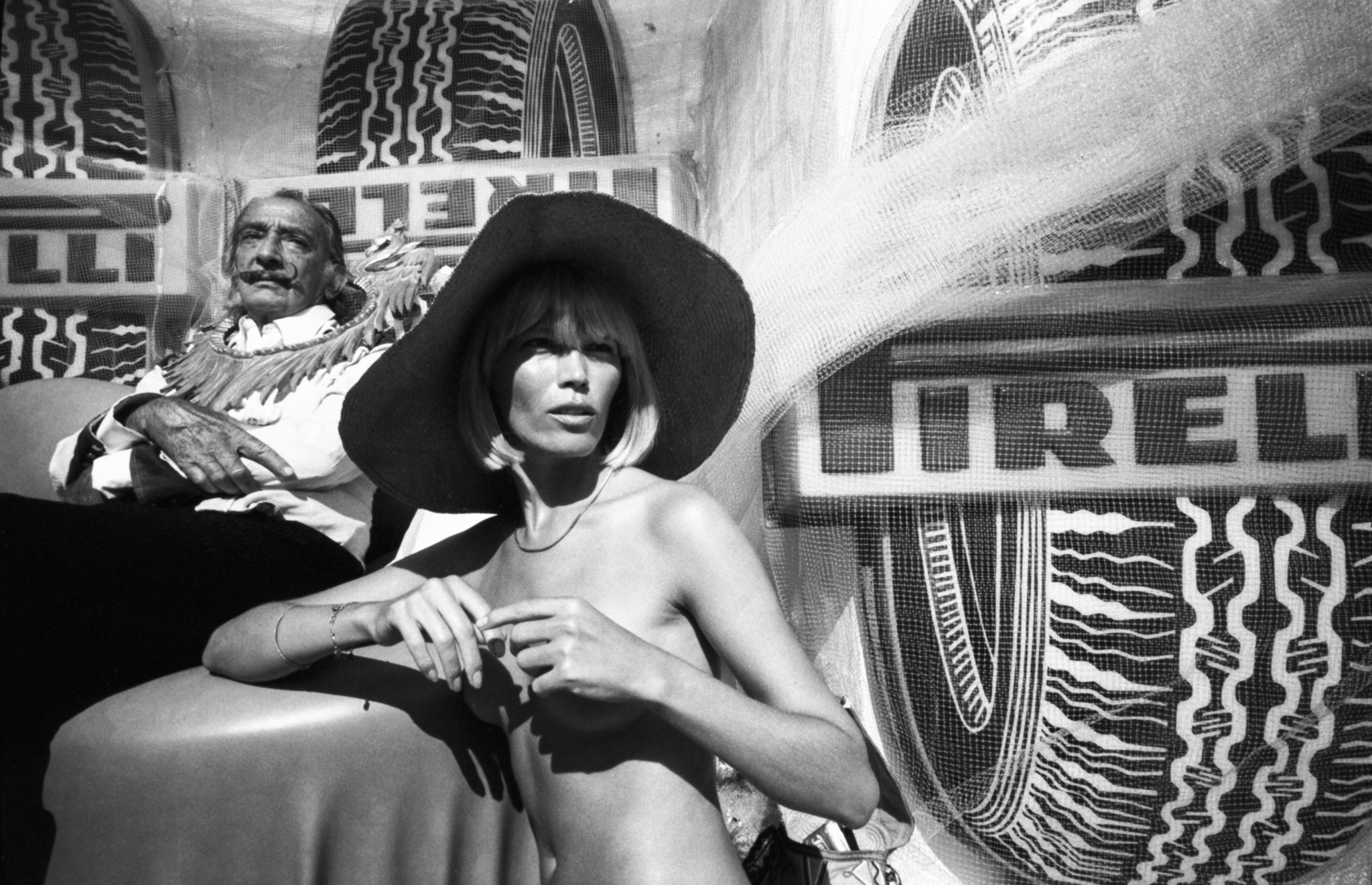
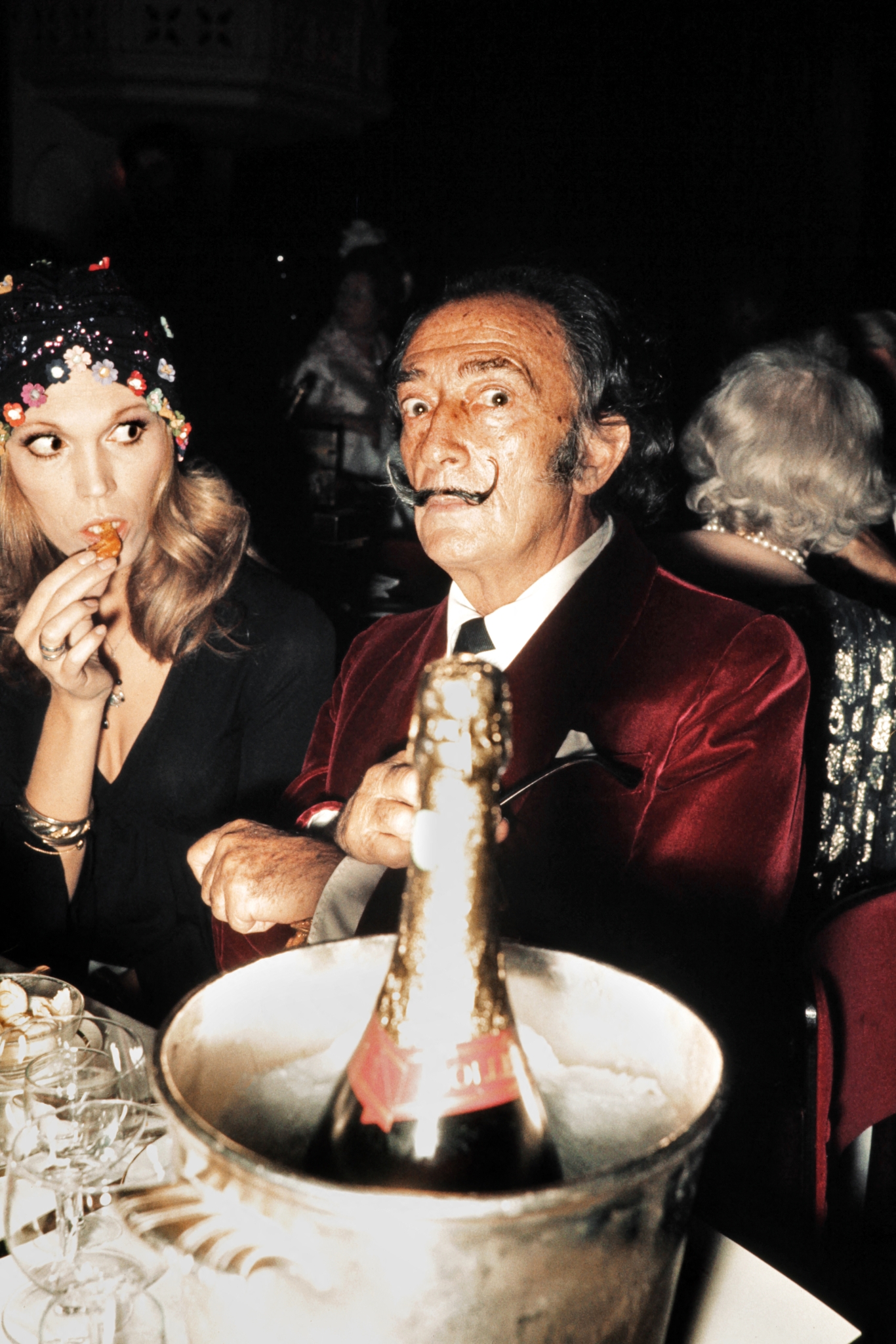
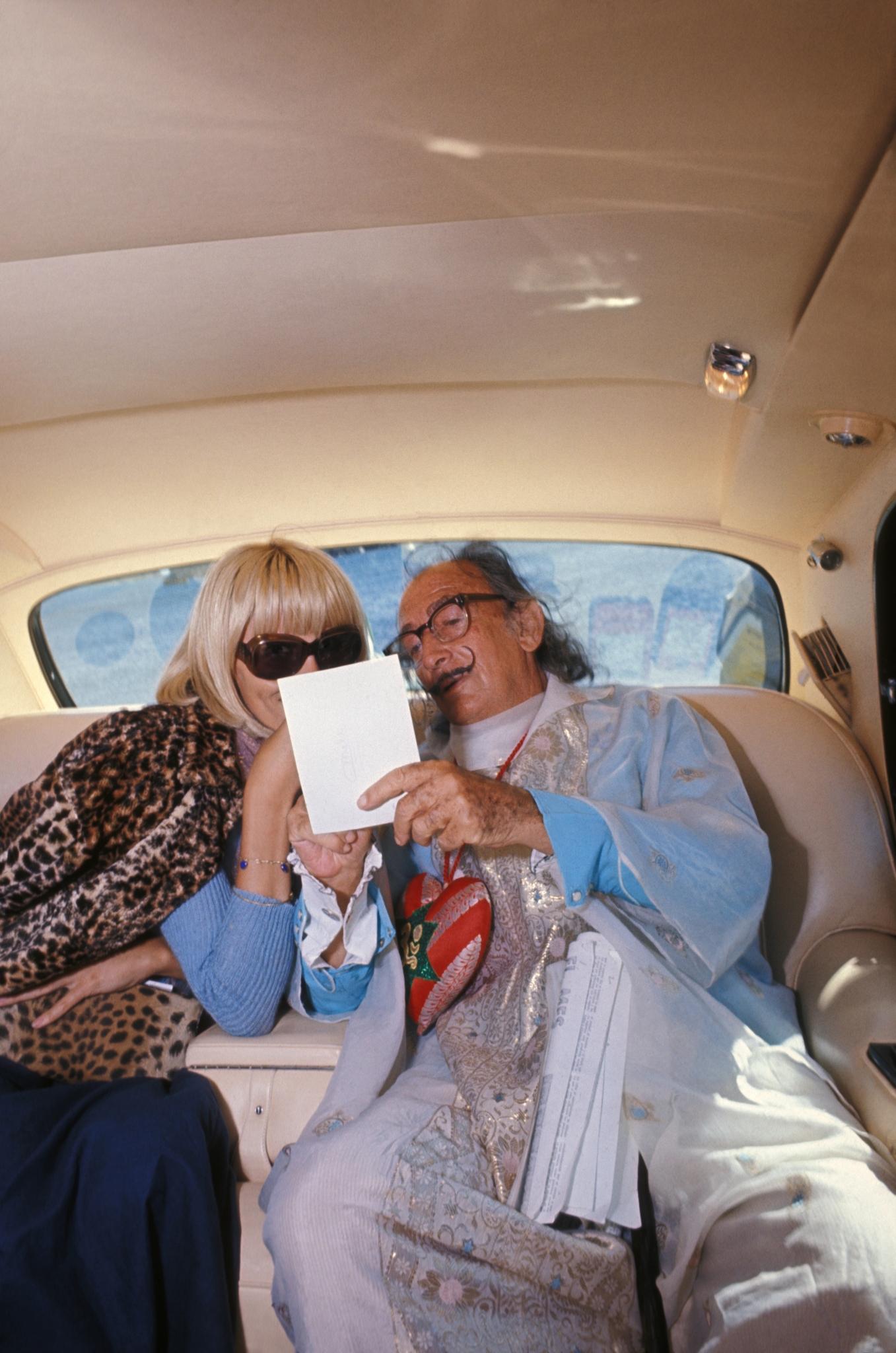

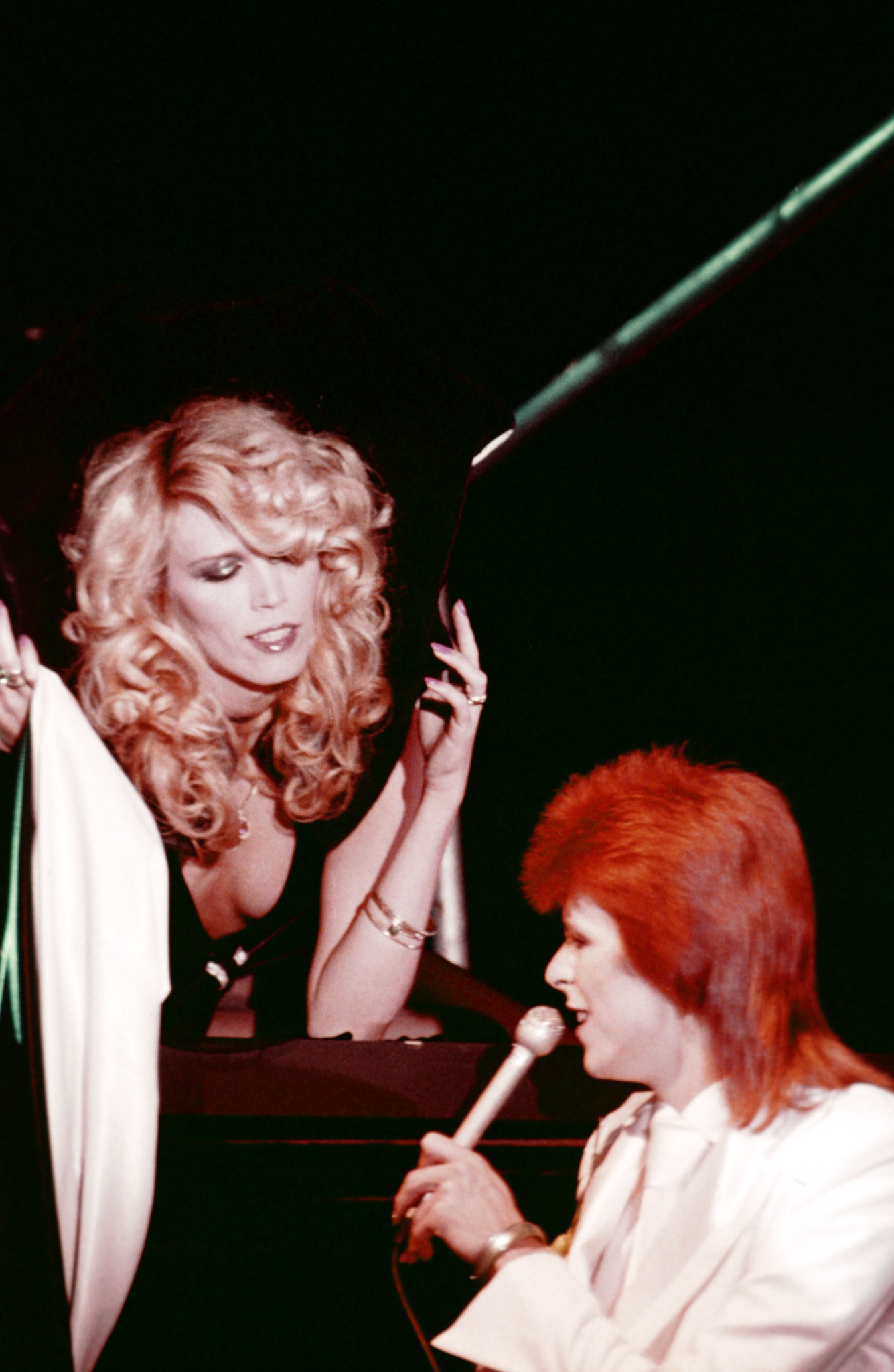
PS: The driving force is curiosity, nothing more.
AL: I think it stops when you’re no longer curious, when you no longer want to be. You have to adapt to what’s there now, in front of you… And this nostalgic side of the past, well, I don’t have that at all. I don’t own a single one of my albums. I don’t give a damn about the films I’ve made…
PS: Does this state of mind come from your childhood, your adolescence?
AL: Yes. I come from a fairly modest background. My parents divorced, so I was with my mother, and my mother, like many Eastern women, accepted her destiny. But why do we have to accept our destiny? If on the other side of the street I see well-dressed people with nice cars, why can’t I go there too? That’s life, it’s about telling yourself, “Go for it, just cross the street.”
PS: When social media arrived, you didn’t hesitate. You’re very active on Instagram, for example.
AL: There are plenty of ideas to take from Instagram; there are tutorials. I also love TikTok; there’s a lot of nonsense, but there are also sometimes great things. I discovered a Chinese doctor who tells you which points to press to feel better. On social media, you have to learn to reject, but there’s some good in it. And there’s a lot of flirting on Instagram too…
PS: Do you get a lot of little DMs?
AL: Yes, a lot—guys who want me to paint their butts.
PS: It’s true that you paint butts well. I thought that, when I saw a painting you posted on Instagram.
AL: I like butts. I always paint nice, round little asses, and one day I said that on TV so I received a lot of offers. It’s crazy, guys aren’t afraid. And at the same time, many of them dream of being a male object, it’s paradoxical. And then when you actually have to take off your underwear to get painted, there’s no one there.
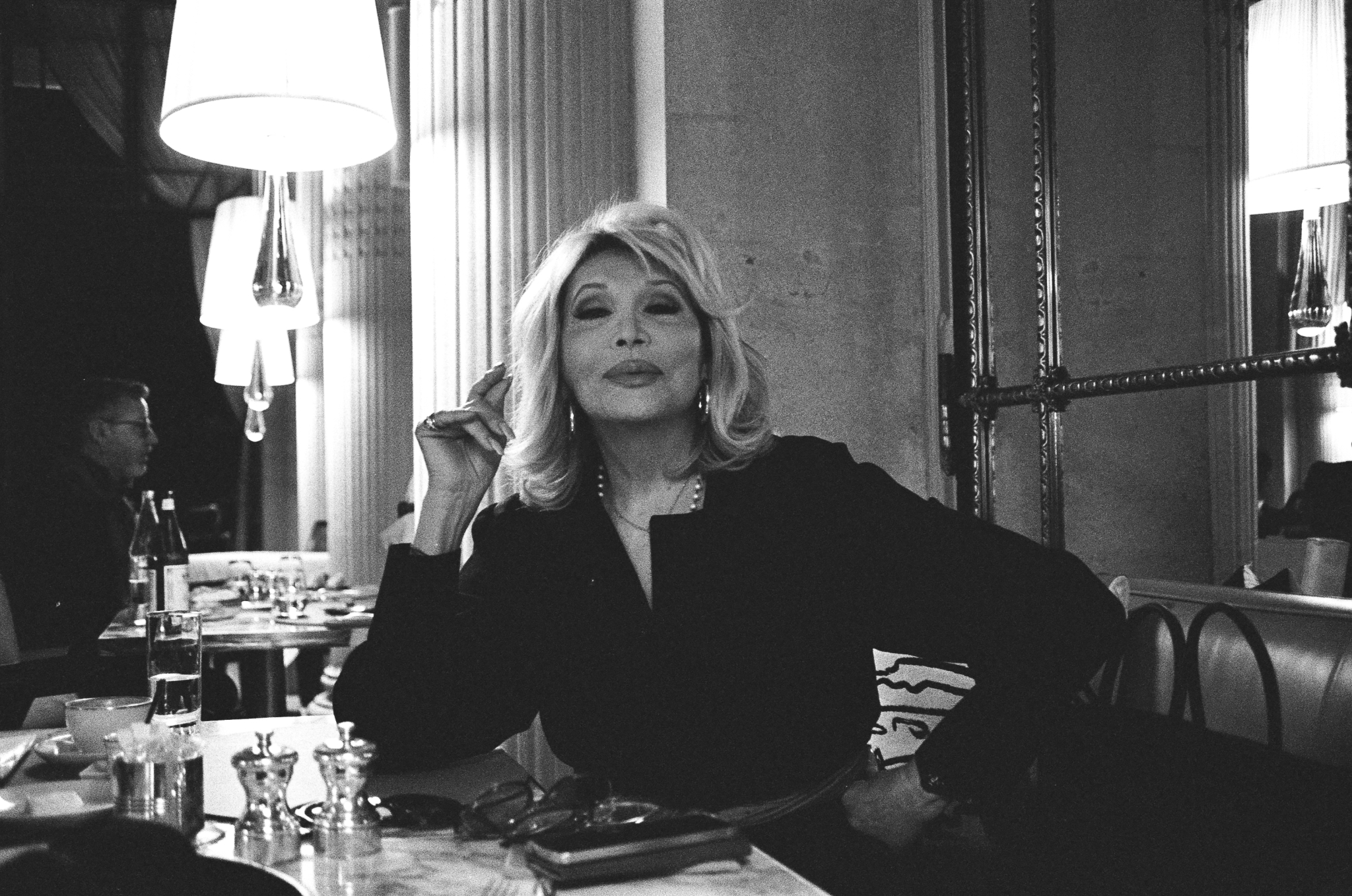
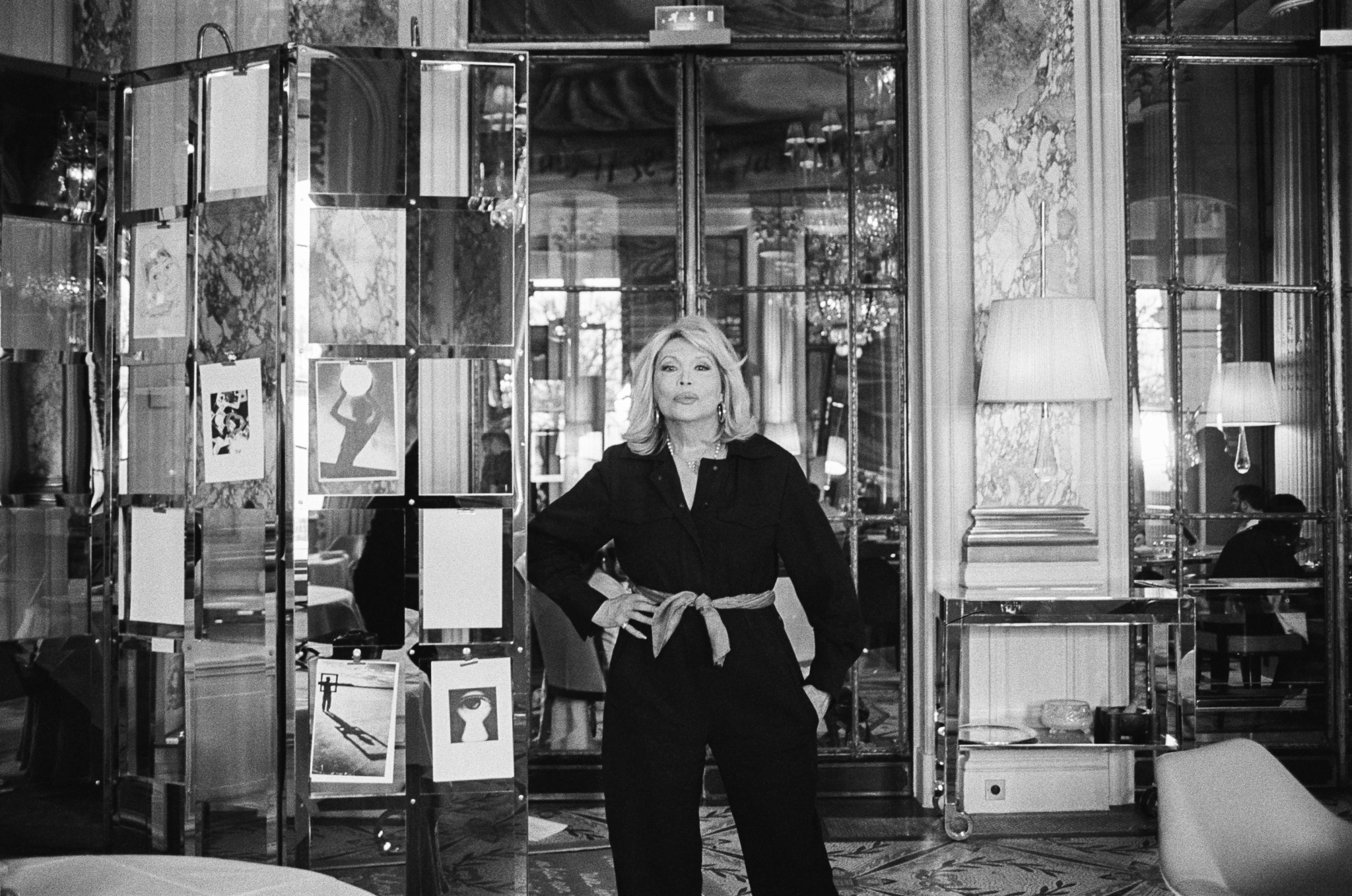
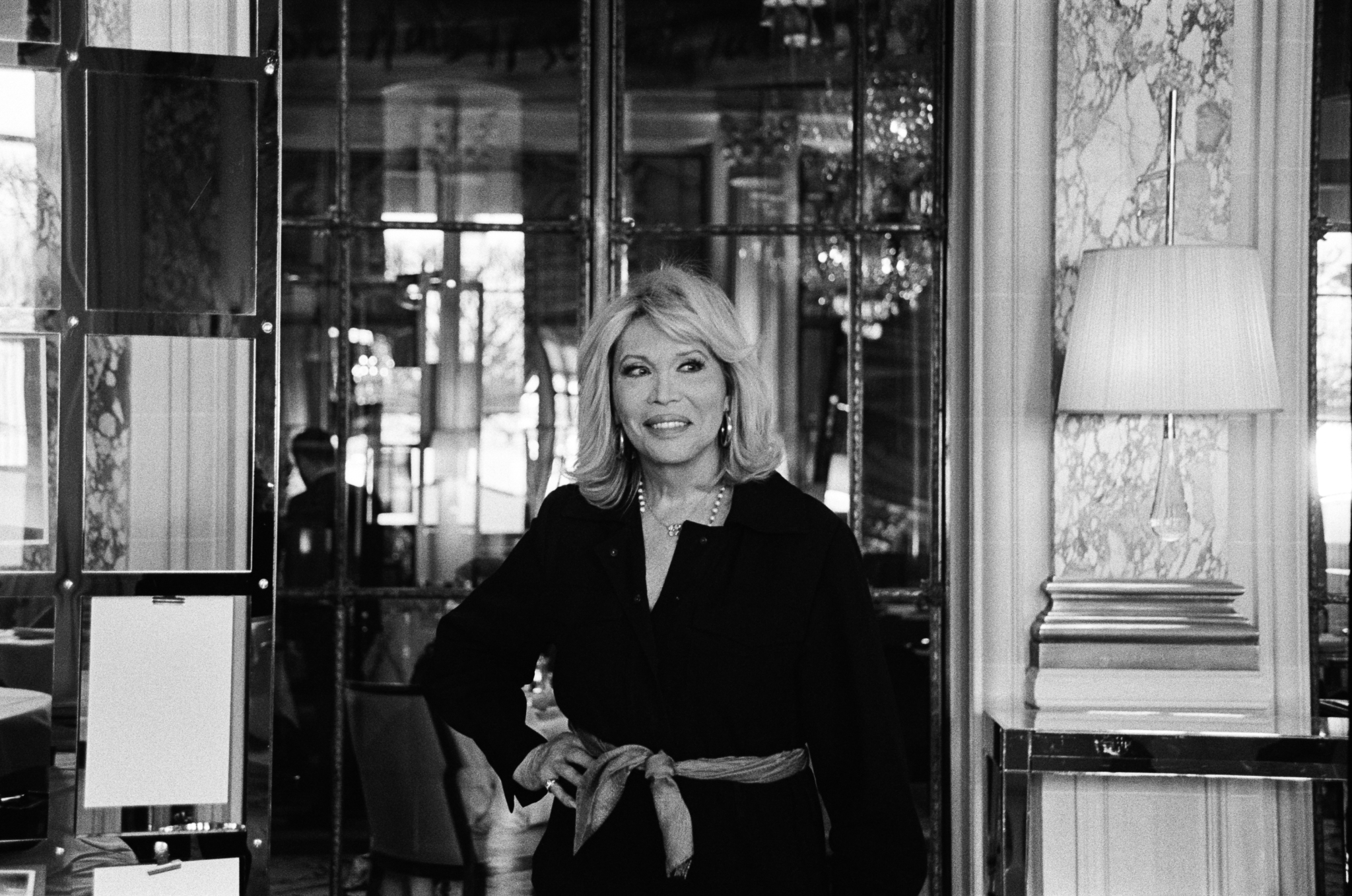
PS: I have the impression that you find it easy to talk to strangers and that it’s always worked out to your advantage.
AL: I love talking to strangers, and I’ve always met kind people.
PS: I’d like to know your relationship with literature.
AL: I’ve always loved reading. I remember when I first met Bowie, I asked him if he’d ever read Naked Lunch by William S Burroughs, and he said, “Oh, no.” We ran to the bookstore and I bought it for him. I introduced Bowie to lots of things. One day for his birthday, I said, “Hey, I’ll take you to the movies. Let’s see Metropolis (1927) by Fritz Lang.” “Who’s Fritz Lang?” he asked me. So I took him to the cinema to see Metropolis, and he was completely overwhelmed.
PS: I was looking at your YouTube channel and there was a great thing you posted about shooting a video for Sorrow with Bowie, and you both seemed to be having a lot of fun.
AL: Bowie fell in love with my photo. He’d spotted me in the Roxy Music photo with the black panther, and he said to Marianne Faithfull, “I love this girl, I have to get to know her”, and Marianne took me to his house and quickly slipped away to leave us alone. He had the flu, he was completely white, his red hair all matted together, every other tooth missing. I said, “He’s so ugly.” At two o’clock in the morning, he took me to dinner at a club in London called Tramp. There was Mick Jagger, his wife Bianca, Bowie, and me. And all evening, he talked with Mick Jagger and said horrible things about everyone, about Marc Bolan, et cetera. And Bianca and I looked into each other’s eyes. So I said, “I’m not sure I’ll ever see that guy again.” But he had charm, he really had a lot of charm. And actually, it’s true, he had a physical attraction because he was quite fascinating. So he came to sleep at my house, obviously. He dirtied my pillow because he wouldn’t take his make-up off. And the next morning, I got a phone call from a woman who asked me, “Can I speak to my husband?” “Husband?” “Well, yes, David”—she’s his wife. So I said to her, “But you didn’t tell me he was married…”
PS: Did that shock you?
AL: My upbringing was a bit traditional. For me, when you’re married, you’re married. But here, it was open. Bowie said, “No problem, she’s my wife. She has lovers, she’s vaguely lesbian and everything.” So much so that Bowie’s wife Angie took me shopping in a boutique to choose little nighties, green satin things. She told me it would turn him on…
PS: And did you find that perverse or exciting?
AL: It’s always a little exciting to feel like a bad girl—a bad, bad girl.
PS: We’re currently celebrating disco in Paris with an exhibition—the music you were an icon of. How did that go?
AL: Bowie had promised to get me to sing—he paid for lessons, but it didn’t work out. I was bored in London and I got a call from Munich. I left straight away; that’s my Casanova side! I arrived at the studio and they had me sing Try To Remember. And each time they said, “Lower, Amanda, lower”. They gave me whiskey and cigarettes, and, of course, in the end, I sang more quietly. Around three or four in the morning, they were happy—they had Marlene Dietrich singing disco with a deep voice. And then I realised that, in fact, the Germans have this obsession: It’s the blonde in a cabaret with the cigarettes. And that’s how it started. They signed me for seven years!
PS: You became a disco and then an electro icon.
AL: I’ve worked with Trevor Horn; the Pet Shop Boys love me and so do the guys from Erasure. I recently almost worked with Måneskin but it didn’t happen—but who knows, maybe in the near future now that Damiano [David] has gone solo. Lots of people want to work with me. Just recently, [Pedro] Almodóvar told me he’d love to shoot with me. I’m really open to all offers.
PS: What’s the coolest offer you could get right now?
AL: I think I’d love to be a jury member at the Cannes Film Festival. I’d love that!





